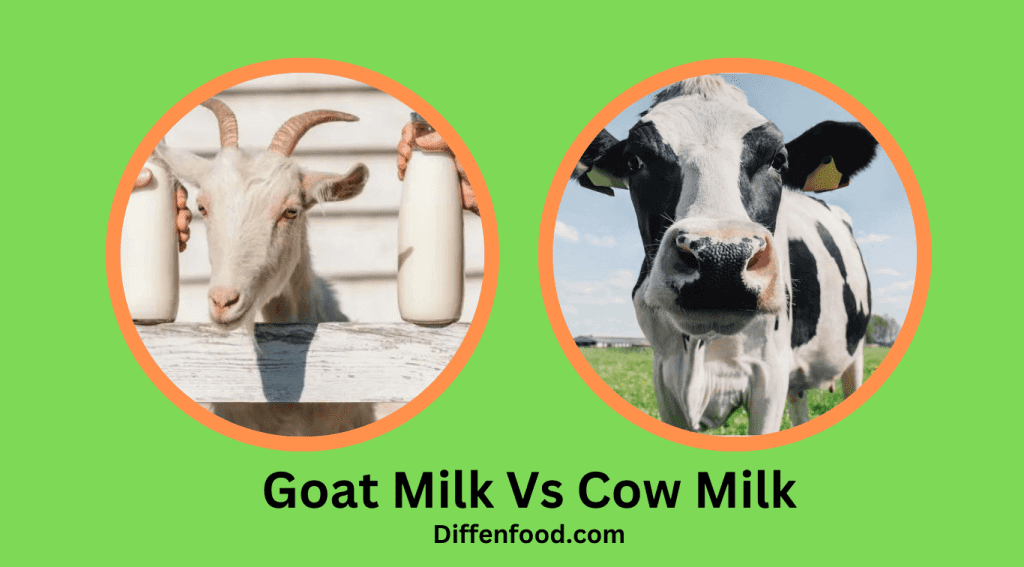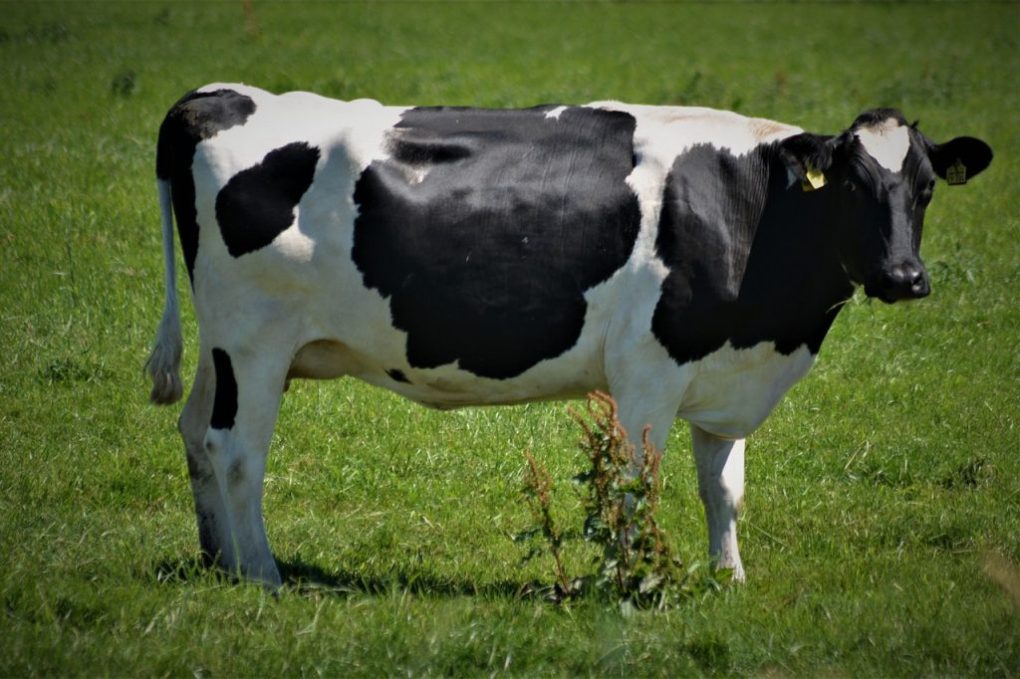
Milk is a staple food for many people as it provides a great source of calcium and protein. For health-conscious individuals, the comparison between goat milk vs cow milk is a common topic of discussion. In deciding between the two, there are several factors to consider, including their nutritional value, taste, and potential health benefits.
Cow milk

Cow milk is a staple in many diets and is widely consumed worldwide for thousands of years. It is a rich source of nutrients, providing essential vitamins, minerals, and protein. In this article, we’ll explore the nutritional value of cow milk, its potential health benefits, and any considerations to keep in mind when consuming cow milk.
Nutritional Value
Cow milk is a rich source of many essential nutrients, including calcium, potassium, and vitamin D. Calcium is essential for strong bones and teeth, while potassium helps to regulate blood pressure and maintain heart health. Vitamin D is important for bone health and immune function. Cow milk is also high in protein, containing all nine essential amino acids.
Taste and Texture
The taste and texture of cow milk can vary depending on the breed of cow and their diet. Generally, cow milk has a mild, slightly sweet flavor and a creamy texture. It is often used in cooking and baking due to its neutral flavor.
Potential Health Benefits
Cow milk has been linked to a range of potential health benefits. Studies have found that it may help to reduce the risk of osteoporosis, a condition that causes bones to become weak and brittle. This is due to the high levels of calcium and vitamin D found in cow milk. Cow milk has also been linked to improved dental health, as it contains casein, a protein that can help to strengthen tooth enamel.
Consumption Considerations
While cow milk is a nutritious food, there are some considerations to keep in mind when consuming it. Some people are lactose intolerant, which means they are unable to digest the lactose found in cow milk. This can cause digestive issues such as bloating, gas, and diarrhea. In these cases, lactose-free cow milk or non-dairy alternatives such as almond milk or soy milk may be a better option.
Cow milk can also be high in saturated fat, which can contribute to high cholesterol levels and an increased risk of heart disease. It is important to consume cow milk in moderation and to choose low-fat or skim milk options whenever possible.
Goat Milk

Humans have consumed goat milk for thousands of years as a popular alternative to cow milk. It has been used in traditional medicine to treat various ailments and is now gaining popularity in the Western world for its nutritional benefits and unique flavor. In this article, we’ll explore the nutritional value of goat milk, its potential health benefits, and how it compares to cow milk.
Nutritional Value
Goat milk is lower in lactose than cow milk, making it easier to digest for those who are lactose intolerant. It also contains higher levels of calcium, potassium, and magnesium than cow milk, which are all essential minerals for bone health. Goat milk is also high in medium-chain fatty acids, which have been shown to have anti-inflammatory properties. This makes it a potential option for those with inflammatory conditions such as arthritis. Goat milk is also lower in cholesterol than cow milk, which can help to reduce the risk of heart disease.
Taste and Texture
Goat milk has a distinct flavor that is often described as being sweeter and tangier than cow milk. This is due to the presence of a fatty acid called caprylic acid, which gives goat milk its unique flavor. In terms of texture, goat milk is thinner and more watery than cow milk, which can make it a good option for cooking and baking.
Potential Health Benefits
Goat milk has been shown to have a number of potential health benefits. Studies have found that goat milk may be beneficial for those with digestive issues, such as irritable bowel syndrome (IBS) and Crohn’s disease. It may also be a good option for those with eczema or other skin conditions, as goat milk has been shown to improve skin health.
Goat milk is also a good source of protein, containing all nine essential amino acids. This makes it a good option for those looking to increase their protein intake. Additionally, goat milk contains higher levels of certain vitamins, such as vitamin A and niacin, than cow milk.
Goat Milk Vs Cow Milk: Key Difference

Nutritional Value
Goat’s milk is lower in fat and calories than cow’s milk, but it is also higher in protein and many essential vitamins and minerals. Goat’s milk is particularly high in calcium, potassium, and vitamin A. Cow’s milk, on the other hand, is higher in vitamin D and B12.
Taste and Texture
Goat’s milk has a tangy, slightly sweet flavor and a thinner, less creamy texture than cow’s milk. Some people find goat’s milk easier to digest due to its lower lactose content.
Potential Health Benefits
Both goat’s milk and cow’s milk have been linked to potential health benefits. Goat’s milk has been shown to help improve bone density and reduce inflammation, while cow’s milk may help to reduce the risk of osteoporosis and improve dental health.
Consumption Considerations
Goat’s milk is often a better option for those who are lactose intolerant, as it contains less lactose than cow’s milk. However, it is important to note that some people may still have trouble digesting goat’s milk. Goat’s milk may also be a good option for those with a cow’s milk allergy. It is important to note that while goat’s milk is lower in fat than cow’s milk, it is still a high-fat food and should be consumed in moderation.
Conclusion
In conclusion, both goat milk and cow milk offer unique benefits and are great options for those looking for a high-quality milk product. By understanding the differences between goat milk and cow milk, you can make an informed decision that meets your individual needs. The choice between goat milk vs cow milk comes down to personal preference and nutritional needs.


